ZERI
Zero Emissions Research and Initiatives
PIGS
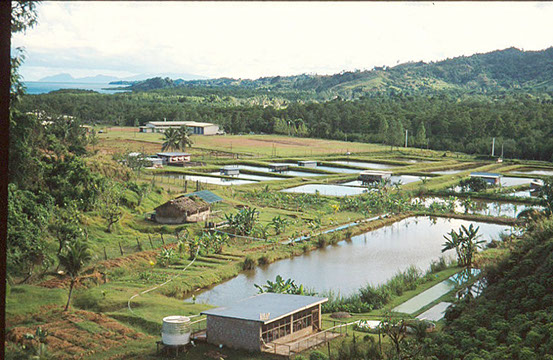
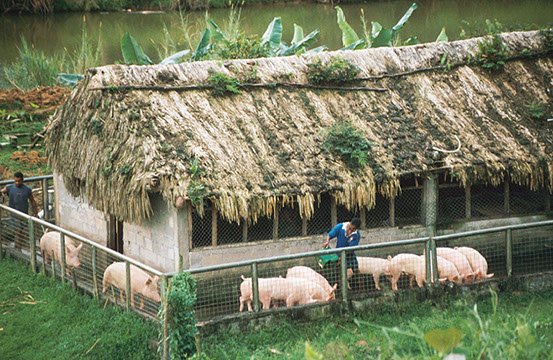
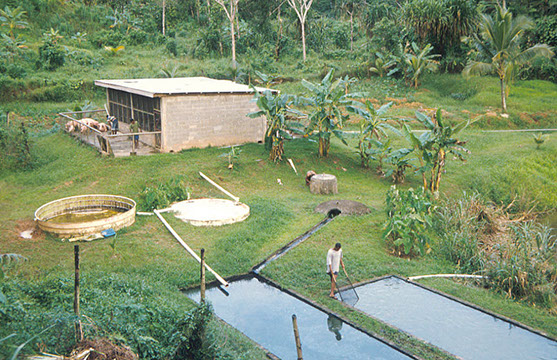
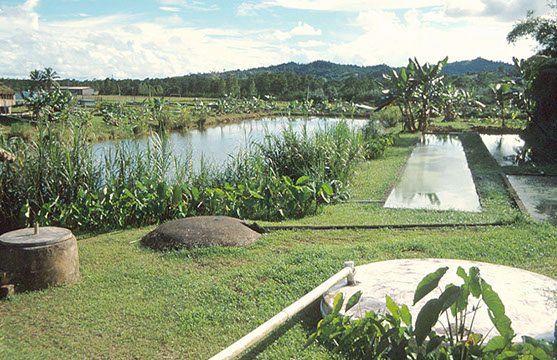
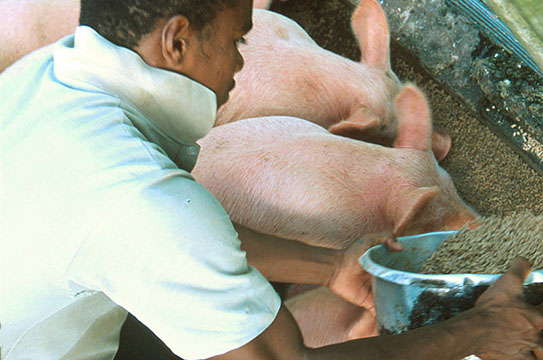
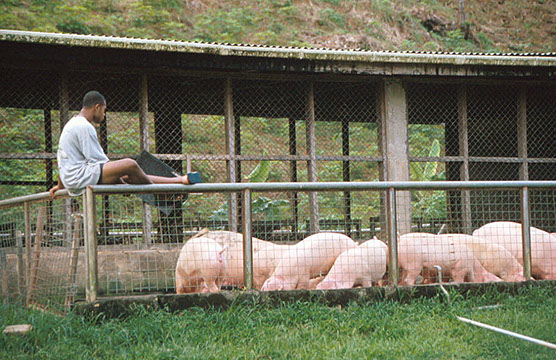
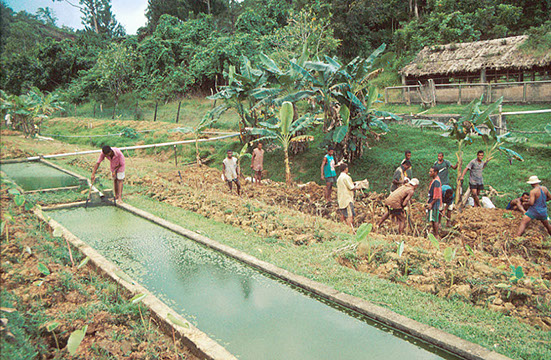
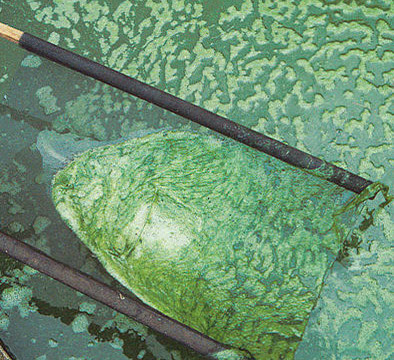
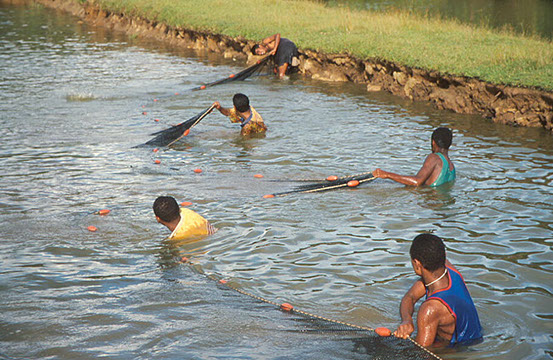

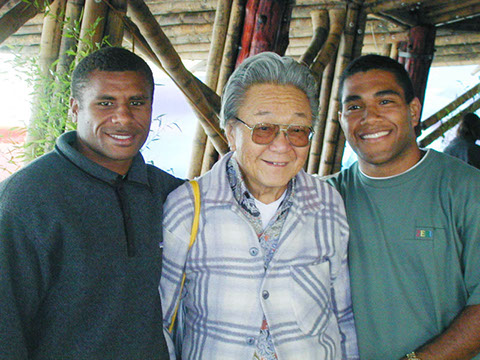
© Gunter Pauli
Before 1996, Montfort Boy's Town, a school for disadvantaged boys in Suva, Fiji, taught students how to raise both food and funds by farming fish in ponds. In 1996, ZERI and Professor George Chan arrived, proposing a new integrated farming system that would expand their current efforts into FIVE healthy new enterprises by simply gathering the waste generated by a local brewery. These new revenue streams would provide food, jobs and energy and give students valuable experience with leading edge farming practices, while providing a new model for their country's fragile economy. Sound too good to be true?
By 1997 the system described below was in place.
The students at Montfort Boys' Town collect the sludge from the local brewery in Suva. This free input of barley mash becomes perfect substrate on which to grow mushrooms. This provides a local food source and more practical skills for the students.
The substrate, mixed with rice straw or sawdust, is inoculated with fungus spores. As the mushrooms grow, they produce an enzyme that unlocks the protein in the grain, transforming it into nutritious animal feed. After the mushrooms have been harvested, the substrate is fed to pigs, eliminating the need to buy feed.
The waste from the pigs is collected and sent through a biodigester, a simple device that allows for treatment of solids and separation of gas. The methane gas from the biodigester is captured, bottled and used as an energy source for lighting and cooking.
The biodigester is the heart of the system, removing over 60% of the BOD (biological oxygen demand) and COD (chemical oxygen demand) of the waste within 3 to 6 days through anaerobic processes.
After the waste has gone through the biodigester, the remaining 40% of the BOD and COD is handled by using aerobic processes in shallow pools. The output of this process is algae, which becomes perfect feed for the adjacent fish ponds, accommodating a wide variety of fish.
The dykes surrounding the fish ponds are covered with a polyculture of various high-protein and fast-growing crops that require minimum attention. This biodiversity on the dykes also serves the crucial function of providing biological control of "pests," preventing the use of toxic chemicals.
Up to half of the surface of the pond is also being used to grow crops hydroponically, creating more local food, additional income and valuable experience for the students.
It is important to note that the human resources involved in this system are crucial to its healthy functioning and evolution; the boys living on site maintain and operate the mushrooms, pigs, biodigester, fish ponds and hydroculture. This provides an opportunity for the boys to see the system expand and change in co-evolution with nature, a key concept for both Mother Earth and ZERI. Montfort Boys' Town has converted its' vocational training school into a center for sustainable development, ensuring that each student comes away with in-depth knowledge and experience with how systems can be designed to create abundance while enhancing the environment.
George Chan's system in Fiji is an elegant example of how we can do so much more with what we already have, eliminating the idea of waste. Abundance in action!
GEORGE CHAN
A TRIBUTE TO PROF. GEORGE CHAN
COMPILATION OF HIS LIFE ACHIEVEMENTS
The ZERI Foundation is producing a compilation of the life achievements of Prof. George Chan who has pioneered the integrated biosystems.
He designed the ZERI projects in Namibia (beer brewery), Fiji (Montfort Boys Town), TECPAR (Brazil) and Gavilanes Farm (Colombia). He has been an inspiration and trained over one hundred ZERI practitioners. A video on his work in Brazil has been posted on the web by Eric Fedus, and is based on the pioneering work by Alexandre Akira Takamatsu. For a first hand insight on these projects please click HERE.